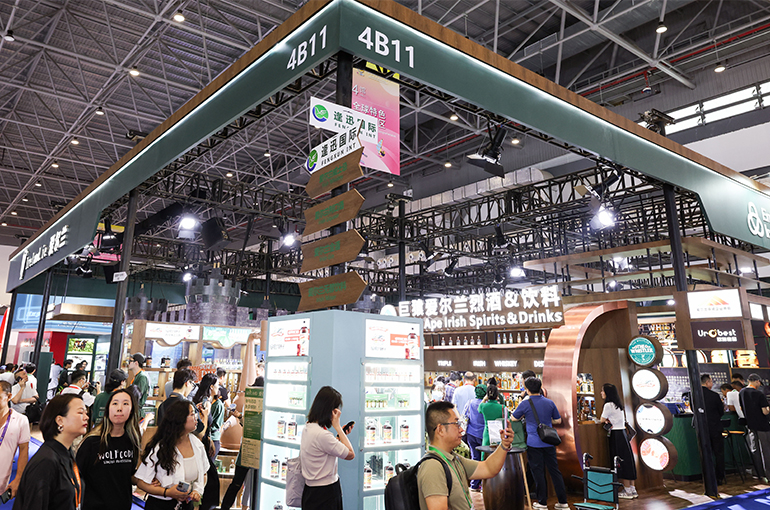 Green Products Take Center Stage at This Year's China Int’l Consumer Goods Expo
Green Products Take Center Stage at This Year's China Int’l Consumer Goods Expo(Yicai) April 19 -- Companies from home and abroad flocked to the 4th China International Consumer Goods Expo, which ended yesterday, to display their wares and showcase their achievements in low-carbon and sustainable transformation.
With the emphasis on eco-friendliness and sustainability, reusable materials were used in the construction, transport, catering, and logistics at the six-day event in southern Hainan province. The venues and supporting facilities all utilized electricity generated from renewable sources.
And many exhibitors displayed their green innovations in their exhibition areas. Shanghai City Image, for instance, set up an experience zone for smart home appliances, environmental protection products and green lifestyles.
Over 4,000 labels went on display at the expo, 19 percent more than last year, according to the latest data. And the number of countries and regions participating in the six-day event in southern Hainan province jumped 9 percent to 71. More than 1,462 new products were launched, a gain of 45 percent over the previous expo.
Chinese firms such as massage chair manufacturer Rotai, carmaker FAW, medical device maker Baobang Medical Equipment, life sciences firm Berry Genomics and transformer manufacturer Shenda all took part.
The trade-in of consumer goods has been earmarked as a top priority this year to promote the renewal and upgrading of durable consumer goods, accelerate the green and low-carbon transformation of the economy and society, and boost sustainable development, Vice Minister of Commerce Sheng Qiuping said at the forum on ‘Green Finance and Sustainable Development.’
“2024 is the year for spurring consumption. China’s consumer market has stabilized and rebounded thanks to favorable policies,” UK professional services network Deloitte’s said in a report released during the expo.
Consumers are more willing to pay for green products, and a quarter of them will pay a premium, said Deng Nie, head of London-based Deloitte’s goods and retail business.
Ireland was the guest of honor at this year’s expo. Twelve countries from the world’s largest trade pact, the Regional Comprehensive Economic Partnership, participated, accounting for 80 percent of member countries. The UK, Mongolia, Russia and Malaysia took part in the National Pavilion for the first time.
This year’s expo covered an area of 128,000 square meters and welcomed around 55,000 procurement agents, 10 percent more than last year. The number of visitors to the main venue swelled 16 percent to 373,000.
Editor: Kim Taylor